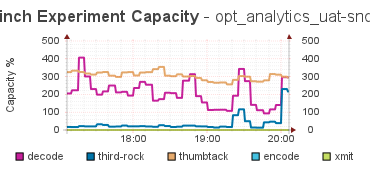Upgraded to Mac OS X 10.10 Yosemite
Monday, October 20th, 2014
This morning I just got a little antsy and decided that on my personal laptop, it was time to upgrade it Mac OS X 10.10 Yosemite. I am so glad I did. The flat look - on all the web sites of the reviews - is just what I like. Almost no chrome - no need for it. Smooth visuals on my retina MacBook Pro, but I'm guessing that's the key to this upgrade - having a rMBP. Still... I've got one :), so I'm loving this.
I'm still on the Light treatment as I don't find the transparency at all intrusive or distractive - as I've been using it on MacVim for a while. MacVim was my only concern about working, but that's fine. What I didn't expect was that Adium 1.5.10 could no longer connect to Yahoo! IM. That's not good because I still reach out to Jeremy on Yahoo!.
I looked on the web, and it turns out that this is a known issue with OS X 10.10, and there is a fix for it, but it's not out yet - not even in beta. I'm a little surprised by this as I didn't really dig into what the patch was, but they have been so proactive in the past, I'm surprised that there's no beta out there for this.
After all, this has been out in "general release" for quite a while now, and while they may not want to target each update, it's something else to know there's a fix, and let weeks pass and no beta or update. I guess I'll have to wait.





